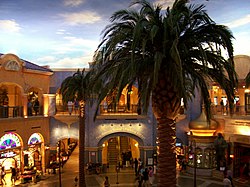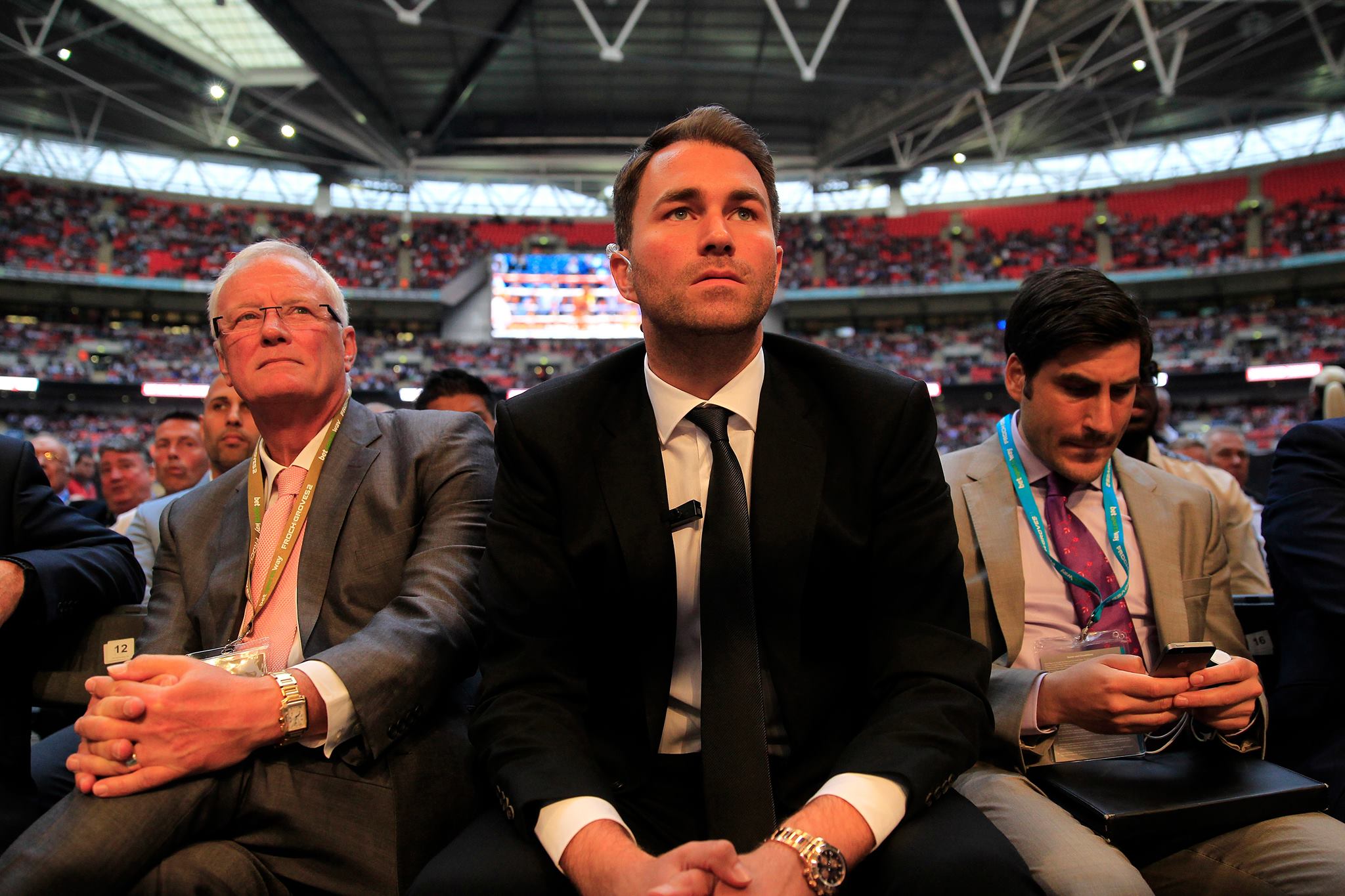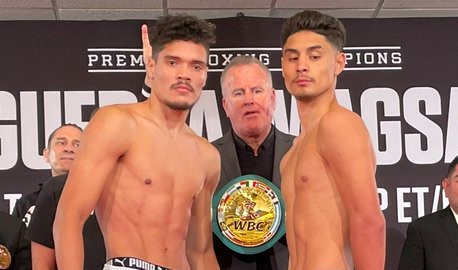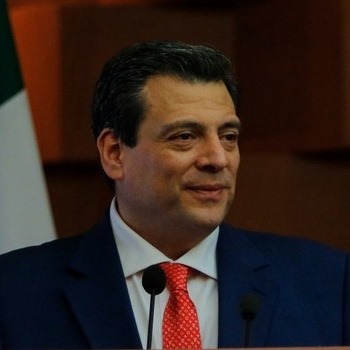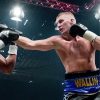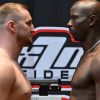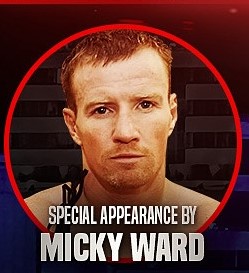By Jonathan Shrager
1. Intro
We are now over a week removed from the fight. I was one of the fortuitous fans to be in attendance and can vouch that the atmosphere was more intense than Froch-Kessler II of May 2013. Having rewatched the fight on TV, which invariably offers the spectator a different perspective, the margin might’ve been even wider in George’s favour; On the night, I had George 2/3 points up when the fight was stopped, but on review, I had him 4.
All the emotions experienced at the event were accentuated when revisiting; Delight at Groves’ majestic display, despair at the injustice of the premature stoppage. It’s a frustration akin to that felt when watching a rerun of Chavez-Taylor I, intensifying with every viewing.
I was on course to win a nice sum of money on the evening, having backed George by decision at 7/1. My dismay, however, wasn’t fuelled by personal financial loss, but rather a genuine feeling of disappointment for Groves, who so nearly pulled it off.
At the same time, I admire Froch immensely. How can any true boxing aficionado fail to revere the man?! I’ve long been a staunch Froch fan, and followed him around the country. He’s been a shining beacon for British boxing over the last 5 years during a time the nation’s interest levels in the sport have recurrently fluctuated. Furthermore he’s been a leading example to world boxing per se for consistently fighting a “who’s who” when most fighters prefer shirking stern challenges. It’s precisely this intrepid attitude that has earned señor Froch ample plaudits from all corners of the boxing fraternity; successively, and successfully taking on the best within the four corners of the boxing ring.
2. The Buildup
But, I’d emotionally, and financially invested my allegiance to #TeamGroves. Similar to DeGale back in 2011, Froch had unsuccessfully attempted to overpower Groves with his alpha personality. Moreover, during the build-up to the fight, we were faced with the constant reminders of Carl’s world honours and repeated proclamations of being “an international superstar.” Far from asserting confidence, this appeared to smack of insecurity at times. Then of course, there’s Carl apparent refusal to acknowledge his first loss to Kessler, forever qualifying the defeat as one that has been avenged, a denial that George references with a wry smile.
Froch’s constant reminders of his achievements, not dissimilar to what we’ve become accustomed to from Floyd, constitutes the sort of narcissism that rankles with the British public, manifested by a spoof video below entitled “Carl The Contradiction Froch” and “International Superstar” meme-based image that have been circulating virally. Some were perhaps beginning to find Carl’s brash outspokenness less endearing, and as with other larger-than-life personalities under the scrutinous spotlight of the public eye, perhaps Carl was in jeopardy of becoming a parody of himself.
Of course, he has someway to go before reaching Adrien Broner levels, a wordsmith who employs his own initials to conjure up succinct descriptions of his lifestyle, in order to remind us that he’s “Always Ballin.” I’m by no means proposing that Carl Froch will soon be spouting the phrase “Constantly Flaunting,” but you catch my drift.
Carl did constantly bemoan a perceived lack of respect from George during the weeks before the fight, yet these alleged slights were mostly baseless figments of Carl’s imagination according to trainer Paddy Fitzpatrick, potentially fabricated as a source of motivation. Furthermore, one needs only rewind several years and you’ll find ample footage of a precocious Carl Froch uttering similar (if not more belligerent) challenges to his British Super Middleweight predecessor Joe Calzaghe. As an aside, Saturday night’s action would’ve provided further evidence to Calzaghe advocates of the inevitable outcome of a hypothetical superbout between Froch and their man.
The verbal warfare that ensues during the build-up to a high-profile grudge match is generally compelling, and ordinarily augments the anticipation surrounding the contest, but seldom bears any relevance come fight-night. However on this occasion, it did seem to play a role, with George perhaps gaining a psychological edge, and certainly appearing the more loose and relaxed prior to the showdown.
Even as odds progressively shortened on Groves, Sky TV, the UK’s premiere sporting platform, had (perhaps even inadvertently) built up towards a Froch victory and failed to give Groves “a fair shake,” as George pointed out post-fight. But this was hardly surprising given the abundance of blockbuster entertainment supplied by Carl over the years.
3. The Fight
On the night, Groves largely out-boxed and outclassed Froch, making him look ponderous at times (Tyson Bruce provides an excellent detailed analysis of the action, Include link: http://www.boxinginsider.com/headlines/froch-ref-derails-groves-thriller/). He outfoxed, outfought and outmuscled Carl during the bulk of the early exchanges, asserting his will, and continually forcing Carl onto the back foot. On his stool during the interval between Rounds 6 and 7, you can hear Carl Froch utter “Fuck Me” to his cornerman with a look of utter bemusement. Jim Watt, Sky Sport’s veteran analyst, posited it may’ve been that Carl had underestimated George, but all the noises leading up to the fight indicated that Carl had taken the challenge extremely seriously.
Some onlookers elicited a poetic irony from Groves’ ability to implement the strategy he had so audaciously outlined two days previous to the bout at the final presser, and one which Carl had so mockingly derided. It’s likely that George even exceeded his own expectations when executing the gameplan, dropping Carl in the first with one of his forecasted right-hands.
4. The Post-Fight Reaction; Officiating Outrage
But, as well as Groves fought on the night, it was Froch who retained the titles. It’s a fight that has subsequently polarized opinion over this side of the pond. Steve Bunce, nationally-acclaimed boxing scribe, tweeted directly following the fight, “The reaction here is, I believe, the most outraged, indignant and volatile that I have experienced on Twitter after a fight.” Whilst Twitter is of course in its infancy, this is a man who has been covering the sport for decades.
The controversy stems directly from the stoppage. Whilst Howard Foster may vehemently disagree with Groves’ assertion, popular perceptions of each pugilist’s respective durability seemingly influenced his officiating on the night. It frequently transpires in all sports. In fact, you don’t have to look much further afield than the very city in which the bout took place, with footballers such as Eric Cantona and Mario Balotelli, to name but a couple, to realize that a sportsman’s reputation can often precede him.
5. The Case for George
The majority, myself included, subscribes to the consensus that the fight was curtailed by a premature stoppage. I won’t delve too far into the specifics; that Groves had only taken a small number of punches unanswered (not the 13 preposterously suggested by Eddie Hearn below), that Groves’ eyes and legs looked sufficiently steady to continue with the bout, and that taking a knee could’ve afforded George time to recover his faculties.
Perhaps most crucially, Froch had been badly rocked at several junctures during the fight with not the slightest indication that the referee would come to his aid. It’s an accumulation of punishment that could’ve subsequently played a decisive role in George’s favour as the fight drew to a conclusion, a notion buttressed by the fact that even a stiff jab had visibly unsettled Carl at the beginning of the 9th Round. Carl will of course refute this, but no matter how hard a punch a human can eat, no man can continually consume hard shots without eventually having his fill. Froch is undoubtedly as game as a bagel, but you can only dine out on your chin for so long until it surely must catch up with you.
The crux remains that Howard Foster probably wouldn’t have intervened had it been Froch on the receiving end of that final flurry. It’s this discrepancy of treatment which irks the fans. So we may deduce that the alleged material composition of both men’s chins – one of granite, one of glass – had likely seeped into Foster’s psyche; hardly surprising given the well-documented nature of such suppositions, with Sky TV putting Froch on a pedestal as an indestructible Terminator according to James DeGale, whilst most reports attached credibility to Froch’s assertion that Groves has a neurological predisposition to being knocked out.
George admittedly did absorb some big shots during that final onslaught, but it was the first time he’d been notably rocked with consecutive punches, and he was caught with less consecutive blows than Bute, who was even afforded a standing count to regain his wits. Groves appeared to be in control of his faculties; arms protecting his head, body movement to slip some of Froch’s punches, whilst returning punches all the while, it would seem that Groves was defending himself intelligently enough to be afforded more time to box on, particularly given the magnitude of the fight. Aside from money and pride, two world titles were at stake, circumstances which have convinced certain analysts to conclude that the stoppage was early.
Furthermore, George had previously survived and prevailed against both Kenny Anderson and Paul Smith on the only occasions he’d been ostensibly in peril during his career. All the above have prompted Groves followers to trend #AndTheTrue.
6. The Case for Carl
But, for all the points a Groves’ fan will put forward, a Froch fan will readily conjure up a counterargument. After all, we were not only spared of Groves potentially pulling off a masterclass, but we were also deprived of prospectively witnessing one of the greatest comebacks of our times. Anyone affiliated to Carl’s camp; himself, his trainers, his family, friends and fans will reassure you that Groves was on the cusp, literally within a matter of seconds, of being emphatically finished.
Froch’s contingent will point to the fact that Carl had been gradually staging the comeback, as it built towards its crescendo in Round 9. Indeed, he had enjoyed the majority of his success during the two rounds preceding the stoppage, interpreted in some quarters as evidence that Groves was waning.
7. The Case for Foster
What we were deprived of, in actuality, is simply not knowing. But whilst he spared us of a definitive conclusion, I can sympathise somewhat with Howard Foster’s rationale. Derek Chisora, in his latest iFL TV interview (below), interpreted Groves’ downward stare towards the canvas as justification for Foster’s intervention. And most importantly, especially in light of recent scares involving Frankie Leal and Magomed Abdusalamov, never have the words of the British Boxing Board Of Control rung more true; “one punch too less is always better than one punch too many.” Of course, the crowd yearned for a conclusive, perhaps concussive end to the fight. But, finality should never be prioritized over a man’s wellbeing.
The thankless task of officiating has never been as evident, with Howard Foster very much finding himself in a “damned if you do, damned if you don’t” predicament.” (As summarized by Sean Crose, http://www.boxinginsider.com/columns/froch-groves-plight-boxings-refs/) We must presume that Foster, the man closest to the action, spotted, detected or sensed something, perhaps even latent, that onlookers couldn’t, which suggested that George could no longer defend himself. And, ultimately, his was the only opinion that mattered. In time, his full explanation will surface, and in the meantime, he shouldn’t be vilified. Indeed, even respected boxing figures with a different perspective, namely Nicky Piper of Ringside (Sky TV’s weekly boxing show,) have opined that Howard Foster is “a world class referee who made a mistake.”
Even more flummoxing and contentious than the stoppage itself might have been the judges scorecards; Two judges had it 4 rounds each, with one judge scoring it 6 rounds to 2 in favour of Groves, the latter far more reflective of most spectators’ verdicts, precipitating the perennial debate over the suspect nature of subjective judging. In fact, the one-sidedness of the fight is evidenced by the dramatic shift of Sky TV’s online opinion poll, with 55% of voters believing Groves would win a rematch, as opposed to the 23% who fancied him prior to their first tango.
8. Uncertainty: The Case For The Rematch
Ultimately, any opinions on the prospective ending of the fight, had Foster permitted action to continue, is pure conjecture. The opinions of Froch and Groves’ apologists will differ wildly, but it’s equally likely that Froch finishes the job, as it is that George survives and prevails on points. Anything else is sheer speculation. We will never know.
The history of both men underscores that either could’ve happened, with prime examples cited being Froch-Taylor and Groves-Anderson. Both men appeared equally fatigued as Howard Foster called an end to the proceedings. An argument could readily be made for either the younger fighter, who’d taken less punishment, proving fresher as the fight progressed, or for the man who has repeatedly illustrated that he thrives under pressure, and that he can tap into unknown energy reserves during the championship rounds to devastating effect. This contentiousness is why a rematch is absolutely essential.
9. Post-Fight Public Perceptions Of This Pair Of Pugilists
In terms of public perception, Froch generally appeared to do himself little favours during the immediate aftermath of the contest. In the minds and hearts of the British public, Carl appeared to lack humility and magnanimousness at times following the victory, traits ill-received by the British. Post-fight complements for Groves were forthcoming, but often interspersed with disclaimers, with every piece of praise he could muster for George invariably qualified by an ego-driven reminder of who had emerged victorious.
Though, as is regularly alluded to by promoters, a fighter’s post-fight adrenaline-fuelled reflections and actions aren’t always the most considered. It’ll be interesting to garner the opinions of both combatants once the bravado, and the media-driven hysteria, subsides. The begrudging respect both men hold for each other is likely to wane as George commences his campaign to coax Carl into the rematch.
It’s astounding that George entered the arena to a torrent of jeers and exited to a standing ovation. “From jeers to cheers, but ultimately tears” neatly encapsulates Groves’ evening. But here is a man who’s fast becoming an unlikely hero of British boxing. The underdog on paper and in popularity against a British Olympian gold-medalist (DeGale) and current British boxing flag-bearer (Froch), he has managed to win over the public and gain approval through his heroics inside the ring.
10. Groves’ Preparations
And Groves’ trainer, Paddy Fitzpatrick, has been a breath of fresh air to the game, all the while propelling himself into mainstream boxing consciousness. With his hat and facial hair, you’d be forgiven for mistaking him for boxing’s Heisenberg, but even Walter White couldn’t have cooked up a more effective gameplan for George.
Re the rematch, factor in the prospective input of Groves’ ex-trainer Adam Booth, who had purportedly long been masterminding the tactics for this encounter, and some might begin to deem George the favourite heading in. There are those that opine that the soothing and familiar influence of Adam Booth in his corner may have assuaged Groves’ machismo, as he was progressively drawn into a slugfest when boxing on the back foot during the latter rounds may have proven the more sensible option versus Froch. George has refuted the suggestion of a working reconciliation with Booth, though with their friendship reformed following the fight, and the fact that Paddy and Adam have co-trained George during previous training camps, it’s not beyond the realms of possibility.
11. The Prospective Rematch, From All Perspectives (Fighter, Trainers, Promoters, Broadcasters, Fans)
Indeed, a rematch seems a no-brainer. The public demands it. Adam Smith, one of the head honchos of British boxing broadcasting due to his position at Sky TV, tweeted immediately following the fight that a rematch is a must, instantaneously sensing that no other fight could rival it for interest or revenue.
“Rematch or Retire” has been the maxim reiterated by Groves’ new cornerman Paddy Fitzpatrick. Though Carl won’t appreciate the ultimatum, nor want to feel strong-armed into a rematch, Paddy’s certainly reflecting the verdict of most British fight fans, including Carl’s loyal following who’d like to dispel any claims that George would’ve recovered to reign victorious.
Groves himself has publicly stated that he wants the fight. Groves will rightfully demand a more even split of the purse this time around, regardless of Paddy’s contention that this is purely about clarifying the better fighter.
Despite murmurings otherwise, promoter Eddie Hearn will want the fight. No matter what anyone thinks of Hearn and Matchroom (I’m personally a fan), he is successfully endeavouring to rejuvenate British boxing through his fun matchmaking and wholehearted embrace of new forms of digital media to disseminate the boxing gospel. But whilst his energetic approach might ingratiate him to a younger audience, he doesn’t want, nor can he afford, for hardcore fans to grow disillusioned. In a sport that can often prove unfair, fairness must remain Eddie’s guiding principle during his quest to establish Britain at the forefront of world boxing. This will be clearly reinforced if he publicly insists on the rematches between Burns-Beltran, and Froch-Groves.
Froch himself might even eventually want the fight, succumbing to two of boxing’s most influential drivers; pride and money. Let’s get this right; Carl doesn’t have to take a rematch. He doesn’t owe anything to anybody. Ultimately, it wasn’t Carl’s fault that the referee made that split-second decision, and he’d do well to remember that the chorus of boos that rained down during his post-fight interview weren’t intended for him, but an audible manifestation of frustration leveled at Foster. No veritable boxing fan could boo a warrior like Carl.
Neither was it Eddie Hearn’s, or Matchroom’s fault, despite certain conspiracy theories pointing to the contrary. Only Howard Foster can be held accountable for his decision, right or wrong.
But, given that Carl’s a man overtly obsessed with legacy, he’d loathe to acquiesce even a modicum of the respect he has so desperately coveted, and deservedly accrued throughout his fabled career. He won’t want the public to question his integrity in this most machismo of sports. Nor will he want the indelible question mark bequeathed by the first bout.
Carl hasn’t historically been a man to eschew a challenge. And all the kudos in the world must be given to Carl for consistently refusing to handpick his adversaries. The preponderance of established champions have customarily opted not to entertain precocious upstarts in the UK, consequently depriving us of such encounters as Foster-Calzaghe and Calzaghe-Froch, but Froch, refusing to relinquish his belt, stepped up to the plate to pit himself against mandatory challenger Groves.
Rob McCracken, Froch’s trainer, might not fancy it. How is he going to mastermind a plan to rectify the areas in which they were soundly beaten, when most of them were attributable to George’s superior speed and technique? And McCracken may even put forward the argument that George should go off and gather a title of his own, perhaps the WBC version currently held by Sakio Bika, in order to bring a tangible accolade to the table. I understand this point, and it would certainly add more spice to the contest, but boxing tends to operate on an ad hoc basis. Fights proposed “down the line” invariably don’t materialize, or the hype train is derailed as one or both fighters are defeated. Floyd-Manny is the prime example, and should be presented as a caveat should Stevenson-Kovalev be continuously delayed. Carl is rapidly approaching the end of his career, the next fight possibly his swansong, so the time is now.
The reality remains that in six months time, after a sufficient period of convalescence, Carl will be six months further away from him prime, and George six months further towards it, both physically and mentally.
Indeed, former stablemate David Haye remarked at the weigh-ins that this was the most lean physically he’d ever seen George, who came in 2 pounds under the stipulated 168lbs weight limit, also prompting questions of whether George could make Middleweight and add yet another name into the impressive British Middleweight mix which already contains the likes of current world champion Darren Barker, and Martin Murray, who most recognize as worthy winner against Sergio Martinez.
And mentally, George was potentially spared of being subjected to further damage. In fact, Carl sustained considerably more punishing blows during the fight, which could’ve only served to reduce his viable boxing lifespan. His superhuman ability to withstand an inhumane amount of punishment has lead some to question whether the man is actually human. Scientists should be rushing to study the composition of his chin.
12. Promotional Situation
The promotional situation underpinning a potential rematch rouses further curiosities. The US boxing landscape is often depicted as a type of sporting turf war with promoters vying for the elite fighters and most lucrative broadcast partnerships. That depiction doesn’t seem too far removed from what we have over in Britain.
It’d be hard to dispute the fact that Eddie Hearn presently rules Britannia. With unquestionably the most impressive stable of fighters, comprising our quartet of current world champions (Froch, Burns, Barker, Quigg,) and the best platform to showcase talent in Sky TV, Matchroom has fast become the most attractive proposition to the bulk of budding British boxers.
Closest competitor, Frank Warren, owner of the UK’s sole channel purely dedicated to boxing, BoxNation, as well as his own promotion Frank Warren Promotions, was the former promoter of Groves, before George defected to Matchroom on a short-term deal that expired just shy of his fight with current Matchroom cash cow Carl Froch. Hence, Groves was no longer officially under contract with Eddie Hearn when the fight transpired. Hearn had expressed an interest in resigning Groves even prior to the bout with Froch (below), and the fight will have obviously redoubled this desire. Groves’ actions had vindicated all of his pre-fight hyperbole, validating his prophecy that he and Hearn could collaborate affluently. Indeed, Hearn has confirmed following the fight that he’d “welcome George with open arms,” as a Matchroom, Sky Sports and Box Office fighter.
It would certainly provide some added polemic to the pugilistic politics if Groves were to return to previous promoter Frank Warren, having essentially exposed Hearn’s star man. It would further sour an already-acrimonious dynamic between the two promoters, but the likelihood is that Groves will want to remain a Matchroom fighter, and seek the sequel of what was accurately dubbed the “Battle of Britain.”
13. Retirement?
Will Froch perhaps retire? Froch himself had encouraged Amir Khan, a man a decade his junior, to consider retirement following his second KO defeat to Danny Garcia. Whilst Carl wasn’t technically KO’d, he received a lot of clean strikes that would’ve left most mere mortals reeling. What’s more disconcerting is that Carl didn’t recall being floored in Round 1. Was this a corollary of excessive blows? Or had he actually persevered through concussion? Would Carl have been deemed fit to continue had Howard Foster requested Froch to walk forward following the count in Round 1?
Retirement conversations appear to be gaining traction as people revisit the fight and dissect Froch’s ponderous performance. It was a scenario initially inferred post-fight by Paddy Fitzpatrick (below), though this postulation evidently suits Team Groves as they posture and probe to procure the sequel. Another man with his own agenda is James DeGale, who has also urged Froch to walk away from the game, stating that Carl is technically the least-gifted world champion in boxing. DeGale might well be reacting directly to Carl’s claim a week prior that James cannot operate at world level, and of course might be attempting to talk himself into the equation, thereby forming a British Super Middleweight triangle.
Froch has certainly endured some grueling wars, and, at 36, nobody could blame him for walking away now. But it’s highly unlikely that Froch will hang up the gloves given he has earned his way to the zenith of British boxing and become our most lucrative prizefighter.
14. Froch’s Potential Next Fights
So, what could be next for Carl Froch, if he pursues other options; Perhaps his greatest challenge now will be accepting a fight which he knows he can lose, handily. It’s undeniably a double-edged sword. The same sort of predicament presented by a certain Andre Ward, a man who Carl has openly intimated constitutes an insurmountable challenge with a style that is “unbeatable.” Perhaps it’s precisely the unassailable nature of a sequel with Ward, commonly recognized as the P4P number 2 in the world, which most appeals to the Nottingham-born pugilist. Ward will be heavily expected to win, and hence Carl might feel his reputation remains intact irrespective of a loss. Hence, it’s a no-lose fight in some senses, as opposed to a loss against the comparatively unheralded Groves.
But whilst the general boxing public wouldn’t criticize Carl for avoiding a rematch with erstwhile conqueror Ward, they’d heavily lambast him for not accepting a rematch with Groves. In fact, failing to oblige Groves for the second time, for what would verisimilarly sell out a football stadium (City Ground or Stamford Bridge, Carl and George’s respective hometown teams), might in one fell swoop tarnish, even slightly diminish his carefully-(ring)crafted cachet more than a lopsided loss to Groves.
And, as posed by prominent journalist Dan Rafael, who’s to say that Froch even deserves a rematch with Ward, a man who charmed the “Cobra” with the use of only one hand. Most discerning boxing analysts, including Carl himself it would appear, predict that Ward would best him on the vast majority of occasions.
On the back of Saturday night’s showdown, the bona fide boxing purist would arguably be more interested to witness Groves pit his wits, and his mitts, against fellow boxers Ward or Dirrell, another combatant who posed plenty of problems for Froch, out-boxing him at stages. Some would uphold that George stands a better chance of emerging victorious against such foes, with neither of the Andres renowned for possessing the type of punching power that could trouble Groves’ allegedly-suspect chin. George’s clout and accuracy, conversely, could test Dirrell’s or Ward’s jaws.
Eddie Hearn might also pinpoint the Kessler trilogy as Carl’s next possible move, and whilst undeniably it would rouse interest in light of their previous two barnburners, it won’t beget the buzz of another “Battle of Britain.” Kessler might fancy it, having witnessed the unnerving amount of punishment withstood by Carl during the fight; significantly more knee-bucklers than he appeared to sustain back in May, which could’ve only served to rack up extra miles on Carl’s boxing clock, whilst Mikkel has been sunning himself on the French Riviera.
Hearn has also bandied around the names of Julio César Chávez, Jr and George Groves’ double-G-initialed counterpart Gennady Golovkin.
Chávez Jr, primarily owing to his father, is a marquis name in Mexico, which suffices in meeting the criteria for boxing box office success. Stylistically he could make for a decent scrap with Carl; he possesses power but he started out his career at Light Middleweight, so question marks remain whether that innate power carries up to Super Middle with any impact against a natural 168-pounder that possesses a legendary chin. Factor in Chávez’s temperamental nature; his performances inside the ring tend to fluctuate, in keeping with his reputedly questionable commitment levels outside of it, signifying there’s no guarantee that a viable opponent turns up come fight-night.
GGG-Froch would certainly intrigue, given that Froch would pose Gennady’s sternest challenge to date, and it would entail a move up for Gennady from 160 to 168lbs, which would bring into play uncertainties of whether he’d prove as effective at the higher weight class. It’d certainly be interesting to discern whether his power resonates as devastatingly at 168lbs, and whether Carl, surely somewhat softened-up in light of recent fights, could stand up to the relentless front-foot pressure applied by GGG.
Adonis Stevenson has also attempted to throw himself into the mix, requesting a showdown with Froch, sparring partner of recently-vanquished foe Tony Bellew. It’s hardly surprising having just witnessed Carl’s least convincing victory to date. Furthermore, it buys Stevenson some time before his inevitable clash with fellow Light Heavyweight banger Sergey Kovalev. This is the least likely of all the fights proposed for Froch, since Stevenson is all wrong stylistically for Britain’s sole two-world title holder. Plus it’ll entail a move up to Light Heavyweight, when Carl’s been a perennial Super Middleweight campaigner throughout his career without any issues at the weight.
All the aforementioned matchups intrigue to varying degrees, and whilst all might be sold to us as PPV fights, and would perform admirably in terms of numbers, not all of them are truly PPV-worthy. And I wonder, would a portion of Froch proponents potentially boycott a PPV versus an opponent other than Groves, through sheer disappointment?!
15. The Magnitude Of Froch-Groves II
I doubt Froch vs GGG/Ward/Chávez Jr would fill an outdoor stadium in the US. In order to do a big live gate, the fight would have to happen on this side of the pond, as Froch is a significantly larger draw over here than any of the stipulated names over in The States. But I still feel Froch-Groves II would outsell them all in terms of a live gate, substantiated by the fact that Eddie Hearn has already been proactively contacted by some of the UK’s largest venues requesting to host the fight.
As preposterous as it sounds, I believe this would remain true, even if Froch-Groves II took place on the opposite side of the pond, in Nevada, a destination wherein Carl has expressed an interest to perform. And who can blame Carl for wanting to experience the bright lights of Las Vegas, the fighting capital of the world graced by the world’s best boxers?! You can bet your bottom dollar, or place your penultimate pound on the fact that the Brits would descend upon Las Vegas in their droves to witness the rematch, a precedent set by former British boxers, most notably Ricky Hatton.
TV deals and PPV buys is a different matter altogether. Heck, even the different time zones can adversely impact the viewership of a fight. But, that aside, GGG/Ward/Chávez Jr undoubtedly increases the international interest, given the collaboration with HBO over in the US. Eddie Hearn is a businessman, first and foremost, and he’ll be considering all angles. But for me personally, it’s a case of satisfying the supply for a demand that is much closer to home.
16. Conclusion
As British fight fans, we can sometimes get consumed by the quasi-romantic notion of domestic dustups, disregarding the bigger picture. It can be a myopic, insular perspective, but with regards to this particular case involving George Groves, I actually think the British fight fans are right to feel that romance.
Carl, as outlined, has options. Both he and Eddie are aware of this. If his next turns out to be his last time inside the squared circle, he has earned the right to go out as he pleases. But I feel that on this occasion, Eddie would do well to listen to, take heed of, and even indulge in the British public. He’s in the process of giving British boxing a facelift, and he doesn’t want to leave any unwanted wrinkles. A perceived lack of effort on his behalf to formalize Froch-Groves Mark II might be construed as a case of prioritizing short- over long-term gain.
Hence, in some ways, this past weekend’s action may have put an almighty spanner in the works with regards to Hearn’s 2014 plans for Froch. But Hearn is a pragmatic businessman who’ll relish the public satisfaction and financial reward that a rematch would yield. He knows where his bread is buttered, and what’s more, he’s a boxing man at heart, so I firmly believe he’ll try to remake the fight. He understands that the public ultimately desire “bang for their buck,” or punch for their pound, as is apt for the “Battle of Britain.”
I’d like to conclude on a resoundingly positive note, befitting of the fight itself. Alas, we were spared of a resolution, but it’s all too easy to acquiesce in negativity, and let it detract from the spectacle for which no superlatives suffice. That’d be the biggest travesty; not the stoppage.
Lest we forget that, controversial conclusion aside, Froch-Groves I was yet another great advert for British boxing, a sentiment echoed by multiple esteemed boxing authors and prominent luminaries within boxing circles over this side of the pond. It ranks atop the list of awe-inspiring UK domestic Super-Middleweight dustups to take place on our shores, alongside contests involving Benn, Eubank, Collins et al. And Froch-Groves II could even eclipse these folkloric duels inscribed in the canon of British boxing.
16. Latest Update
In the immediate aftermath of the fight, with the adrenaline still surging and the cameras rolling, Carl himself proposed the rematch, which Paddy Fitzpatrick insists he honour. An hour later, in the dull-lit media room backstage, with spotlight and hormone levels rapidly fading, Carl’s tune had seemingly changed, switching to a stance which suggested the sequel wouldn’t be his subsequent step, whilst leaving the possibility open down the line. It’s a sentiment he’s regurgitated the week following the fight, which superficially doesn’t bode well. With time (not least father time) waiting for no man, the rematch will most probably never happen unless it’s Carl’s next fight. So let’s just hope Part Deux is finalized before long.
And the great news for British boxing aficionados is that it looks promising according to the most recent interview with Eddie Hearn (above.) Whilst confirming that he’d met with HBO, and that a dual PPV with Sky and HBO for Froch vs Ward/JJCJr/GGG could prove equally as lucrative as the rematch with Groves, he states “it would be mad of me as a promoter and as a fan not to try and make that rematch. Of course it’s high on my agenda. It’s going to be my focus and hopefully we can get there. The backlash has been of such a proportion that it’s difficult for Carl not to take the rematch. People have been bombarding me on Twitter telling me to make the fight, so I know the demand’s there. Fight’s are made through demand, and the huge demand is there from the UK broadcasters and fans, so of course it’s going to be explored over the next couple of weeks, I hope we get there, because it’s good for British boxing.” Eddie subsequently claims that he wants to let the dust settle so that a sane decision can be rendered. Requested to provide a number between 0 and 10 on how likely he thinks it is that the fight gets made, he said an 8, proceeding to state “I do think it’ll happen,” with the principal caveat being the purse distribution, which he believes could prove a crucial stumbling block in the negotiations, and reduce the chances to as low as a 2 out of 10.



